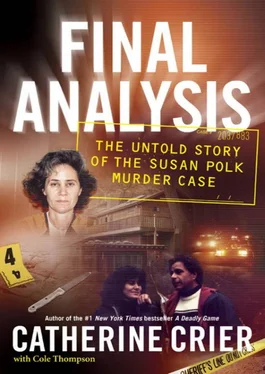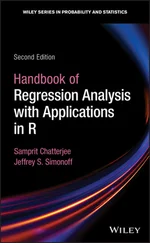“I am an older father,” he told those attending the workshop that day. “I am a survivor of the Holocaust. My family and I were in hiding in Europe unable to talk for one year. I have a built-in sense of survival. I have a commitment to not let anything happen to my children. It was a horror what happened to us.”
It was after this recollection that Felix vowed to keep up the fight on his son’s behalf. “I’ve alienated some people, some police and FBI. But I don’t care…. My rage is omni present. I wake up with it every morning. My fantasy, of course, is to kill them,” he said of his son’s alleged abusers. “I am a rather moral person. But I won’t stop, not now. People are not in a place to protect our children,” Felix asserted. “My son cannot be protected.”
The supposed inability of authorities to prosecute those allegedly responsible for harming his son prompted Felix and Susan to establish a new organization, “ENOUGH!” to help victims of ritualistic and other forms of child abuse. Its main goal was to change legislation so that children could testify against their alleged attackers in a public court of law.
While Felix denied charges from some in the psychological community that he was using his son as a way to gain publicity for his practice, his behavior with Adam was certainly not that of a trained therapist. He clearly exhibited poor judgment when he paraded the youngster before an audience during one presentation and detailed the abuse he supposedly suffered while in day care. Even Felix’s daughter from his first marriage had raised questions about her father’s conduct and motives in a letter to him in early 1988. Though the twenty-six-year-old Jennifer Polk had recently joined her father and his new family on a vacation in Hawaii, in the letter she made it clear that she was now estranged from her dad, expressing her frustration that during the trip she was unable to live up to either her father’s expectations or Susan’s. She expressed distaste for Felix’s crusade in Adam’s name and accused her father of always needing a cause to cling onto.
Her accusation evoked a response from Felix, who responded venomously in a return letter: “It is a lie that I need to hang onto a cause, that I need something to be upset about,” Felix replied in a four-page typewritten response on March 4, 1988. “However, I note that is true of you…. Your latest cause to refer to Adam enrages me,” he continued. “I want to shove those words down your throat. My son Adam was brutalized, and I, his father, have not been able to protect him or see that something happens to the people that raped him.”
Felix’s response was ironic and telling. Was he really disappointed in Jennifer’s comments or in himself for what he perceived as another “failure” to protect a loved one from harm? Now he was facing the prospect that he delivered his son to a cult, proving once again that he was unable to protect his charge from evildoers. Worse yet, his own daughter was condemning him for trumping up false accusations in order to satisfy a need to be needed.
In the letter, Felix denied being judgmental of his daughter, yet went on to voice disapproval of Jennifer’s recent weight gain and assertive behavior, which he described as “lacking femininity.”
“It is a lie that I have not recognized your changes or that I haven’t liked them,” he wrote. “It is true that I haven’t liked some of them such as your putting on tons of weight, your increased rigidity and pseudo-feminism.”
Was he now projecting his negative feelings about his own mother, whom he once described as the “power” in the family, onto his daughter? Or did Jennifer represent someone else? Jennifer Polk had just turned sixteen when Felix and Sharon legally separated in October of 1978. Perhaps Felix was not leaving Sharon when he left the couple’s comfortable Berkeley home that year, but the temptation of his pretty teenage daughter.
Notably, it was around the time that Jennifer was maturing that Felix began his affair with young Susan.
“I have examined by looking inside myself and by talking with others what the basis may be for my reaction to your irresponsible and hurtful behavior,” Felix wrote in a second letter to Jennifer in March of 1988:
What I will take responsibility for is that I have a particularly strong sensitivity to loss, to having somebody I love dearly taken away from me….
You have ripped yourself away from me, and to me that feels like a deep and familiar loss…. I tried to meet your needs in growing up…while I well may have been overly protective of you at times (to balance out your attacking and critical mother)…. You need to work on the tendency to project and to have good and bad people in your life.
Mom [Sharon Mann] is in now, and I am out.
Interestingly, the theme of “good parent,” “bad parent” would reemerge in Felix’s second marriage to Susan Bolling.
Chapter Ten
THE MIDDLE CHILD
In the days following the discovery of Felix’s bloodied body, it became clear to investigators that the victim’s sons were divided. While Gabriel and Adam believed that their mother was “delusional” and capable of committing the murder, the Polk’s middle son, Eli, described Susan as a woman who tried to hold her family together while living with an “abusive” husband.
On October 15, 2002, the day after Gabriel Polk found his father’s body in the guesthouse, detectives from the Contra Costa Sheriff’s department interviewed Eli at the Byron Boys’ Ranch. At over six feet tall, Eli towered over the officers as he followed the men to a small, private office to talk. It was unclear to the detectives whether family members had contacted Eli about his father, and Detective Steve Warne thought that he might be the first to deliver the sad news.
Taking a seat across from the strapping teen, Detective Warne motioned his colleague, Roxanne Gruenheid, to join him behind the desk. He observed that Eli’s physical stature and crew cut made him appear older than he really was. Warne was anxious to see the teen’s reaction to news of his father’s murder.
It was soon apparent that Eli had no idea what had transpired at the Miner Road compound that past weekend. He was “appropriately shocked” and “upset” as he struggled to come to grips with the news, Detective Warne wrote in his official report.
“It’s definitely not my mom,” Eli insisted. “She would just never do it. That’s not even a remote possibility. My mom did not do it. That’s a fact.”
Though Eli tried to answer the detectives’ questions, it was clear he was in shock.
His troubled world suddenly collapsed around him. Away from home for just two weeks, now his father was dead and his mother was in jail charged with Felix’s murder. It seemed his parents had gone berserk without him there to keep the peace.
After several minutes of conversation, Eli suddenly halted the interview. “I don’t want to talk to you anymore,” he announced. Rising to his feet, he left the room. The officers made no effort to stop him, giving the teen a chance to pull himself together. Five minutes later, he reappeared in the doorway and slid back into his seat across the table. He was visibly upset but agreed to cooperate as best he could.
In response to questions, Eli told the officers he had been at the Boys’ Ranch for only twelve days, since October 3, 2002, when a judge sentenced him to juvenile hall. He was allowed limited contact with his family—weekend visits and five-minute phone calls. His father had visited him on Sunday, October 6, and Susan had been to see him on October 13, while his father and brothers were driving to Los Angeles.
During her visit, Susan told Eli that his father was staying at a hotel while she was in town visiting from Montana for a few days. He didn’t know which hotel, only that his father was there because his parents were in the process of getting a divorce. Eli believed that Susan was in Montana looking at homes to buy and that she returned to deal with her financial affairs, mostly a “debate” with his father over “checks” and a court date that she missed. His parents had begun having problems the previous September, causing Felix to move to Berkeley. At the time, Susan said the marriage “was not working out.” She had given the house back to Felix then set out for Montana to find a place to relocate.
Читать дальше











